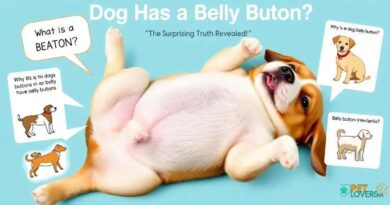What is Zinc in Dog Diet
What is Zinc in Dog Diet?
Zinc is an essential trace mineral that plays a crucial role in the overall health and well-being of dogs. It is involved in numerous biological processes, including immune function, skin health, and the synthesis of proteins and DNA. Understanding the importance of zinc in a dog’s diet can help pet owners make informed decisions about their furry friends’ nutritional needs.
The Role of Zinc in Immune Function
Zinc is vital for maintaining a robust immune system in dogs. It helps in the development and activation of T-lymphocytes, which are crucial for the immune response. A deficiency in zinc can lead to a weakened immune system, making dogs more susceptible to infections and diseases. Ensuring that your dog receives adequate zinc can help support their immune health and overall vitality.
Zinc and Skin Health
One of the most noticeable effects of zinc deficiency in dogs is skin-related issues. Zinc plays a significant role in maintaining healthy skin and coat. It aids in the production of new skin cells and helps to heal wounds. Dogs lacking sufficient zinc may experience symptoms such as hair loss, flaky skin, and dermatitis. Therefore, incorporating zinc into your dog’s diet can promote a shiny coat and healthy skin.
Sources of Zinc in Dog Food
There are various sources of zinc that can be included in a dog’s diet. Animal-based proteins, such as meat, fish, and poultry, are excellent sources of zinc. Additionally, certain grains, legumes, and vegetables also contain zinc, although they may not be as bioavailable as animal sources. When selecting dog food, it’s essential to check the ingredient list for quality sources of zinc to ensure your dog is getting enough of this vital mineral.
Recommended Zinc Levels for Dogs
The recommended dietary allowance (RDA) for zinc varies depending on a dog’s age, size, and health status. Generally, adult dogs require about 15 mg of zinc per day, while puppies may need slightly more due to their rapid growth. It’s important to consult with a veterinarian to determine the appropriate zinc levels for your specific dog, especially if they have any underlying health conditions.
Signs of Zinc Deficiency in Dogs
Recognizing the signs of zinc deficiency in dogs is crucial for timely intervention. Common symptoms include poor coat condition, skin lesions, lethargy, and a weakened immune response. If you notice any of these signs, it may be beneficial to consult with a veterinarian who can recommend dietary adjustments or supplements to address the deficiency and improve your dog’s health.
Zinc Toxicity in Dogs
While zinc is essential for dogs, too much of it can lead to toxicity. Zinc toxicity can occur if a dog ingests excessive amounts of zinc supplements or certain types of metal objects. Symptoms of zinc poisoning include vomiting, diarrhea, abdominal pain, and lethargy. If you suspect your dog has ingested too much zinc, it’s important to seek veterinary care immediately to prevent serious health complications.
Supplementing Zinc in a Dog’s Diet
In some cases, dogs may require zinc supplementation, especially if they are on a restricted diet or have specific health issues. Zinc supplements are available in various forms, including tablets and powders. However, it’s crucial to consult with a veterinarian before adding any supplements to your dog’s diet, as they can help determine the appropriate dosage and form based on your dog’s individual needs.
Choosing the Right Dog Food
When selecting dog food, it’s essential to choose a high-quality brand that meets the nutritional needs of your dog, including adequate zinc levels. Look for foods that list meat as the primary ingredient and contain a balanced mix of vitamins and minerals. Reading labels and understanding the nutritional content can help ensure your dog receives the necessary zinc for optimal health.
Conclusion
In summary, zinc is a vital mineral that plays a significant role in a dog’s diet. From supporting immune function to promoting healthy skin, ensuring your dog receives adequate zinc is essential for their overall well-being. By understanding the importance of zinc and its sources, pet owners can make informed dietary choices that contribute to their dog’s health and happiness.



